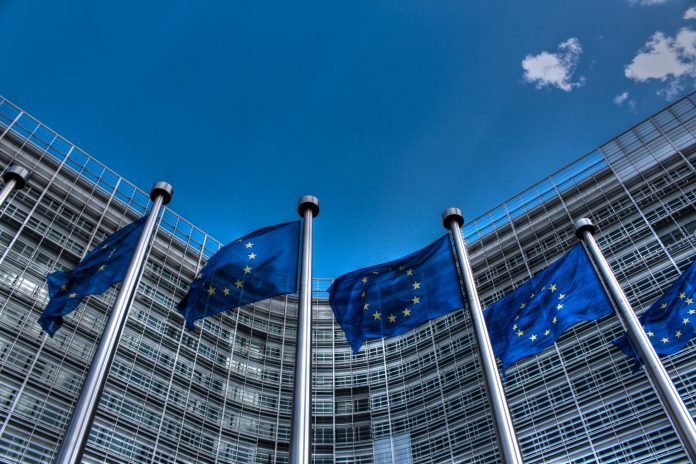Following Russia’s invasion of Ukraine in February 2022, the US, the European Union and their allies immediately responded with an unprecedented wave of sanctions and restrictive measures against Russian institutions and individuals deemed to be connected to the government. The sanctions were intended to create cracks in the Russian elite and to have a punitive effect on the Russian economy, thereby destroying any unified support for the war and making it costlier for Russia to continue fighting.
The EU sanctions policy did not work out as expected. The war is in its 18th month, political dissenters have removed themselves from the country, and the IMF predicts positive economic growth for Russia, which has replaced its western trade partners with eastern and southern ones. Now, on its 11th package of sanctions, the EU, along with the US and the UK, seems to be gradually refining its approach by tightening restrictions and making sanctions smarter and more targeted.
The problem with sanctions up until now has been that while they aimed to change the behavior of the targeted individual, they provided no incentive for change. In other words, once someone had been slapped with sanctions, there was no way out, even if they denounced the war or cut ties to institutions that funded it. Sanctions were applied to anyone, whether in favor or against the war, who was considered to be close to the Russian government or who was subject to public attention due to his or her management position in private companies. Individuals were targeted on the basis of assumptions inferred from publicly available information, like the names of people who attended a routine meeting with state officials, now known to have been unrelated to the war itself.
The EU sought to sanction leading businessmen involved in companies that were thought to provide substantial sources of revenue for the Russian budget. As a result, founders and executives of companies, regardless of their relation to the government, were sanctioned by the dozen. Many of them began removing themselves from boards of directors and cut any alleged ties to the government or to companies in which they may had been working for years, while others left the country even before any sanctions were applied. None of this, however, had any effect on their inclusion in sanctions lists or on Russia’s war effort.
Sanctions began to receive criticism from lawyers and observers for not yet being as effective as initially planned and for going against fundamental EU values. Some experts argue that sanctions have had the opposite effect from the one intended: fracturing the opposition abroad rather than the elite within Russia. Alexey Navalny’s chief of staff, Leonid Volkov, went as far as to argue that sanctions, in their current form, are a “one-way ticket” that “push people into Mr Putin’s arms.” If a change in behavior does not lead to the lifting of sanctions, then any change in behavior becomes senseless. This notion, which contradicts the purpose of sanctions, namely, behavioral change, has the danger of becoming the prevailing view of those subject to them.
Lately, however, there are signs that sanctions regimes are responding to criticism and adapting their approach. Recently, the former Goldman Sachs banker Elena Titova was removed from the US sanctions list, not by petition, but by legal action. Titova was sanctioned on the grounds that she was connected to the backlisted Bank Otkritie, even though she stepped down immediately after the war started. Titova managed to prove that she was no longer linked to any institutions that could fund the war, and sanctions were lifted. Her example is likely to motivate other members of the elite to cut off ties to the government and affiliated organizations, when prior to her winning the case, it seemed they had no reason to.
Lev Khasis, former first deputy CEO of Sberbank, also got UK sanctions against him lifted last month. Other businessmen have quit their former positions but were less lucky in challenging sanctions. The Russian branch CEO of tech company Yandex Tigran Khudaverdyan stepped down, as did the head of Russian ecommerce giant Alexander Shulgin. The founder of Rusagro agricultural holding Vadim Moshkovich also had to step down from the company’s board and reduce ownership. Dmitry Konov stepped down from his position as CEO of petrochemicals company Sibur after he was targeted with sanctions. Similarly, Andrey Melnichenko, owner of the fertilizer group EuroChem and coal company Suek, resigned from both boards of directors. Despite stepping down from their positions, all of these businessmen are still fighting to get themselves de-listed.
Following Khasis’ and Titova’s success, it seems that a mechanism for sanctions de-listing is beginning to take shape and that western countries are gradually amending the so far ineffective “there are no good Russians” approach. A more targeted method for imposing sanctions would be more effective and would also comply with the rule of law and human rights principles, which the blanket sanctions may be in violation of.
Nevertheless, an updated sanctions approach is only a possibility at this given point in time, and nothing has been set in stone. Thousands of Russians have been sanctioned but only a few have taken the risk to step down from their companies, break away from the elite and try to get sanctions against them lifted in court. Even fewer have actually succeeded in doing so. Would a sanctions de-listing mechanism have the potential to encourage a domino effect of breakaway elites? The signs are promising.

